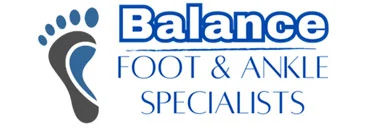Expert Foot & Ankle Treatment from Michigan’s #1 Podiatrist - Balance Foot & Ankle Specialist
Effective Relief Starts With Expert Achilles Care
What You Need to Know About Achilles Tendonitis
Achilles tendonitis is a painful condition that can affect your ability to walk, run, or even stand comfortably. Often caused by overuse or strain on the tendon connecting your calf muscle to your heel, this condition is common among athletes and active individuals—but it can happen to anyone. At Balance Foot & Ankle Specialists in Michigan, we provide accurate diagnosis, personalized treatment, and long-term care plans to help you heal safely and quickly.

Understanding Achilles Tendonitis: Causes, Symptoms & Treatments
Achilles tendonitis typically develops due to repetitive stress or sudden increases in physical activity. Common symptoms include heel or calf pain, stiffness in the morning, swelling, and limited range of motion. If left untreated, the condition can worsen, leading to a tear or rupture. Treatment often starts with conservative care such as rest, ice therapy, custom orthotics, and physical therapy. In more severe cases, minimally invasive procedures may be required. Early intervention is key to a full recovery, and our Michigan-based specialists are here to support you every step of the way.
Don’t Let Achilles Pain Slow You Down
If you’re experiencing persistent heel pain or stiffness, it’s time to consult a professional. At Balance Foot & Ankle Specialists, we treat Achilles tendonitis with proven techniques tailored to your lifestyle and recovery goals. Schedule your consultation today and take the first step toward lasting relief.
Top 9 Solutions for Achilles Tendonitis
Expert Foot & Ankle Care in Michigan
Achilles tendonitis is a common yet painful condition caused by inflammation of the Achilles tendon—the large tendon that connects your calf muscles to your heel bone. Whether you’re an athlete, weekend warrior, or someone who’s just started a new walking routine, Achilles tendonitis can strike when you least expect it. The good news? With the right approach, recovery is absolutely possible.
At Balance Foot & Ankle Specialists, we’ve helped thousands of patients in Michigan and Oakland County find relief from tendon pain. Below are the top 9 solutions we recommend to help you get back on your feet—stronger and pain-free.
1. Rest & Activity Modification
The first and most essential step is to avoid the activities that caused the inflammation. Stop high-impact activities like running or jumping and give your tendon time to heal. Gradually return to movement once symptoms ease.
2. Ice Therapy
The first and most essential step is to avoid the activities that caused the inflammation. Stop high-impact activities like running or jumping and give your tendon time to heal. Gradually return to movement once symptoms ease.Apply an ice pack to the back of your ankle for 15–20 minutes several times a day. This reduces inflammation and numbs the area to relieve pain.
3. Anti-Inflammatory Medications
Over-the-counter NSAIDs like ibuprofen can help manage pain and swelling. Always consult with your doctor to ensure safety, especially if you have other medical conditions.
4. Supportive Footwear
Avoid flat shoes or unsupportive sandals. Instead, wear shoes with cushioned heels and firm arch support to reduce stress on your Achilles tendon.
5. Custom Orthotics
Our podiatrists can create custom orthotics tailored to your gait and arch structure. These inserts reduce strain and help your tendon heal properly over time.
6. Stretching & Strengthening Exercises
Gentle calf stretches and eccentric strengthening exercises help improve tendon flexibility and reduce recurrence. We’ll guide you through a rehab program suited for your needs.
7. Physical Therapy
Working with a physical therapist can accelerate recovery. Targeted therapy improves range of motion, strengthens muscles, and retrains movement patterns.
8. Night Splints or Braces
In more severe cases, night splints or walking boots can immobilize the foot to encourage healing while preventing further stress.
9. Advanced Treatments (Shockwave, PRP, or Surgery)
If conservative treatments fail, our clinic offers modern solutions like extracorporeal shockwave therapy (ESWT), platelet-rich plasma (PRP) injections, or minimally invasive surgery. These options are especially effective for chronic or severe Achilles tendonitis.
Achilles Tendonitis vs. Rupture: Key Differences You Need to Know
Understanding Achilles Injuries and How to Tell Them Apart
he Achilles tendon, the largest and strongest tendon in your body, connects your calf muscles to your heel bone. It’s essential for walking, running, jumping, and almost any foot movement. But what happens when this tendon gets damaged? Two common conditions—Achilles tendonitis and Achilles tendon rupture—are often confused, yet they differ greatly in severity, symptoms, and treatment.
Let’s break down the key differences between these two conditions to help you recognize the signs and seek the right care.
What Is Achilles Tendonitis?
Achilles tendonitis is an overuse injury that causes inflammation of the Achilles tendon. It typically develops gradually over time due to repetitive stress, especially in athletes or active individuals.
Common Symptoms of Achilles Tendonitis:
Gradual pain or stiffness at the back of the heel
Swelling or thickening of the tendon
Pain that worsens with activity or after rest
Tenderness or a burning sensation along the tendon
A creaking feeling when moving the ankle
Tendonitis is usually treatable with conservative care, such as rest, ice, physical therapy, and orthotics.
What Is an Achilles Tendon Rupture?
An Achilles rupture, on the other hand, is a partial or complete tear of the tendon. This is a sudden and often severe injury that usually occurs during intense activity or trauma—like jumping, pivoting, or suddenly pushing off the foot.
Common Symptoms of a Ruptured Achilles Tendon:
A sudden “pop” or snapping sound
Immediate, sharp pain in the back of the ankle or calf
Inability to push off the foot or walk properly
Visible gap in the tendon
Weakness or complete loss of strength in the affected leg
Ruptures often require surgical repair, followed by a structured rehabilitation program.
Final Thoughts from - Dr. Tom Biernacki
As a foot and ankle specialist, I’ve treated countless patients with both Achilles tendonitis and tendon ruptures. While they may seem similar at first, the differences between the two are critical when it comes to treatment and recovery.
Achilles tendonitis is typically manageable with early intervention, rest, and personalized care—especially if you catch it before it worsens. A rupture, however, is far more serious and needs immediate attention. If you’ve felt a sudden snap or can’t push off your foot, don’t wait—get evaluated right away.
The good news? Whether it’s tendonitis or a rupture, the earlier we see you, the better your outcome. At Balance Foot & Ankle, we use advanced diagnostics and treatment options tailored to your needs to help you heal and get back on your feet—with strength, confidence, and long-term relief.
— Dr. Tom Biernacki, DPM
Why Choose Balance Foot & Ankle Specialists in Michigan?
We’re more than just a clinic—we’re your partners in healing. Our board-certified podiatrists specialize in diagnosing and treating Achilles tendon injuries using a patient-first approach. Whether you’re in Oakland County, Macomb, or the greater Michigan area, we offer:
- State-of-the-art diagnostic tools
- Personalized treatment plans
- Transparent insurance and billing
- Same-week appointments
Ready to Take the First Step Toward Relief?
Don’t wait until it gets worse. Achilles tendonitis is treatable—and with the right care, you can return to full strength. Book an appointment with Balance Foot & Ankle Specialists today.
Do have a Torn Achilles tendon rupture or sprained Achilles tendinitis?
We go over How to know if you have an Achilles tendon rupture vs. a torn achilles tendon vs an Achilles tendon Injury vs. just Achilles tendinitis. We then go over the best Achilles tendon massage and Achilles tendon stretches.
Related Videos
Achilles Tendonitis pain!
Achilles tendonitis treatment
Ankle strengthening full video
The immediate ankle sprain treatment guide
Retrocalcaneal Heel BURSITIS Treatment [Heel Pain Exercises & Massage]
Plantar fasciitis treatment
Plantar Fasciitis Exercises & Stretches
Walking Boot Tips
Best Ankle Brace?
Best Orthotics For Flat Feet?
Best Running Shoes for Flat Feet & Heel Pain 2022 [Top 5 Men & Women]
Self Myofascial Release [Foam Roller & Massage Stick PROS & CONS!]
How To Foam Roll 2020! [Foam Roller vs Roller Stick RESEARCH]
Best Arthritis Treatments
Best anti inflammatory diet for arthritis and joint pain
Best Supplements for joint pain and arthritis
Find Your Nearest Podiatry Clinic in Michigan

Achilles Tendonitis: Frequently Asked Questions
Overuse, poor footwear, tight calf muscles, and sudden increases in activity can lead to inflammation of the Achilles tendon.
Common symptoms include heel pain, stiffness, swelling, tenderness, and discomfort when walking or running.
A podiatrist will perform a physical exam and may use imaging tests like an ultrasound or MRI to confirm the condition.
Mild cases may improve with rest, but professional care is recommended to prevent complications like tendon rupture.
Treatment options include rest, ice, anti-inflammatory medications, physical therapy, orthotics, and in some cases, surgery.
Recovery time depends on the severity, ranging from a few weeks for mild cases to several months for more advanced stages.
Low-impact activities may be allowed, but it’s important to avoid high-impact exercise until your podiatrist clears you.
Ignoring the condition can lead to chronic pain, tendon thickening, or a full rupture requiring surgery.
We offer personalized, evidence-based treatment plans to manage pain, support healing, and prevent re-injury.

